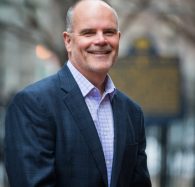Get Involved

 Become a Thought Partner
Become a Thought Partner
Partner with us to produce thought leadership that moves the needle on behavioral healthcare.
 Other options to get involved
Other options to get involved

Thank you!
We received your information and will be in contact soon!
Get Involved

 Grantmaking
Grantmaking
We fund organizations and projects which disrupt our current behavioral health space and create impact at the individual, organizational, and societal levels.
 Participatory Funds
Participatory Funds
Our participatory funds alter traditional grantmaking by shifting power
to impacted communities to direct resources and make funding decisions.
 Special Grant Programs
Special Grant Programs
We build public and private partnerships to administer grant dollars toward targeted programs.
 Program Related Investments
Program Related Investments
We provide funds at below-market interest rates that can be particularly useful to start, grow, or sustain a program, or when results cannot be achieved with grant dollars alone.
Get Involved

 Alyson Ferguson, MPH
Alyson Ferguson, MPH
Chief Operating Officer
Contact Alyson about grantmaking, program related investments, and the paper series.
 Samantha Matlin, PhD
Samantha Matlin, PhD
Senior Learning & Community Impact Consultant
Contact Samantha about program planning and evaluation consulting services.
 Caitlin O'Brien, MPH
Caitlin O'Brien, MPH
Director of Learning & Community Impact
Contact Caitlin about the Community Fund for Immigrant Wellness, the Annual Innovation Award, and trauma-informed programming.
 Joe Pyle, MA
Joe Pyle, MA
President
Contact Joe about partnership opportunities, thought leadership, and the Foundation’s property.
 Bridget Talone, MFA
Bridget Talone, MFA
Grants Manager for Learning and Community Impact
Add some text here
“A system cannot fail those it was never meant to protect.”— W.E.B. Du Bois
Last week we saw yet another killing of a Black man rise to the nation’s consciousness. Daniel Prude was just 41 years old. He was a father of five adult children who lived in Chicago with his sister, Tameshay. He was beloved by his family.
In March, Daniel experienced a psychotic episode. Fearing for his health and safety, his sister sent him to stay with their brother, Joe, in Rochester, NY. It was there that Daniel sought care in a hospital setting but was released within three hours with no diagnosis. Now widely covered in the news, what happened next involved the criminalization of his mental illness, resulting in a horrific incident of police brutality.
This is a story of what happens when multiple systems put a human life in jeopardy. As a behavioral health foundation, we know that people with serious mental illness are overrepresented in the criminal justice system and are more likely to experience violence than to be perpetrators of it. We also know that, as a Black man, Daniel was at a significantly higher risk of receiving inadequate health care and experiencing violence from police. Rather than understand and address the vulnerabilities that our systems created for Daniel, they were weaponized to endanger, and ultimately take his life.
Our systems can and must be better. Centering the dignity and value of human life must guide how we create policy and build systems of care.
To read the full article by Joe Pyle, click here.










